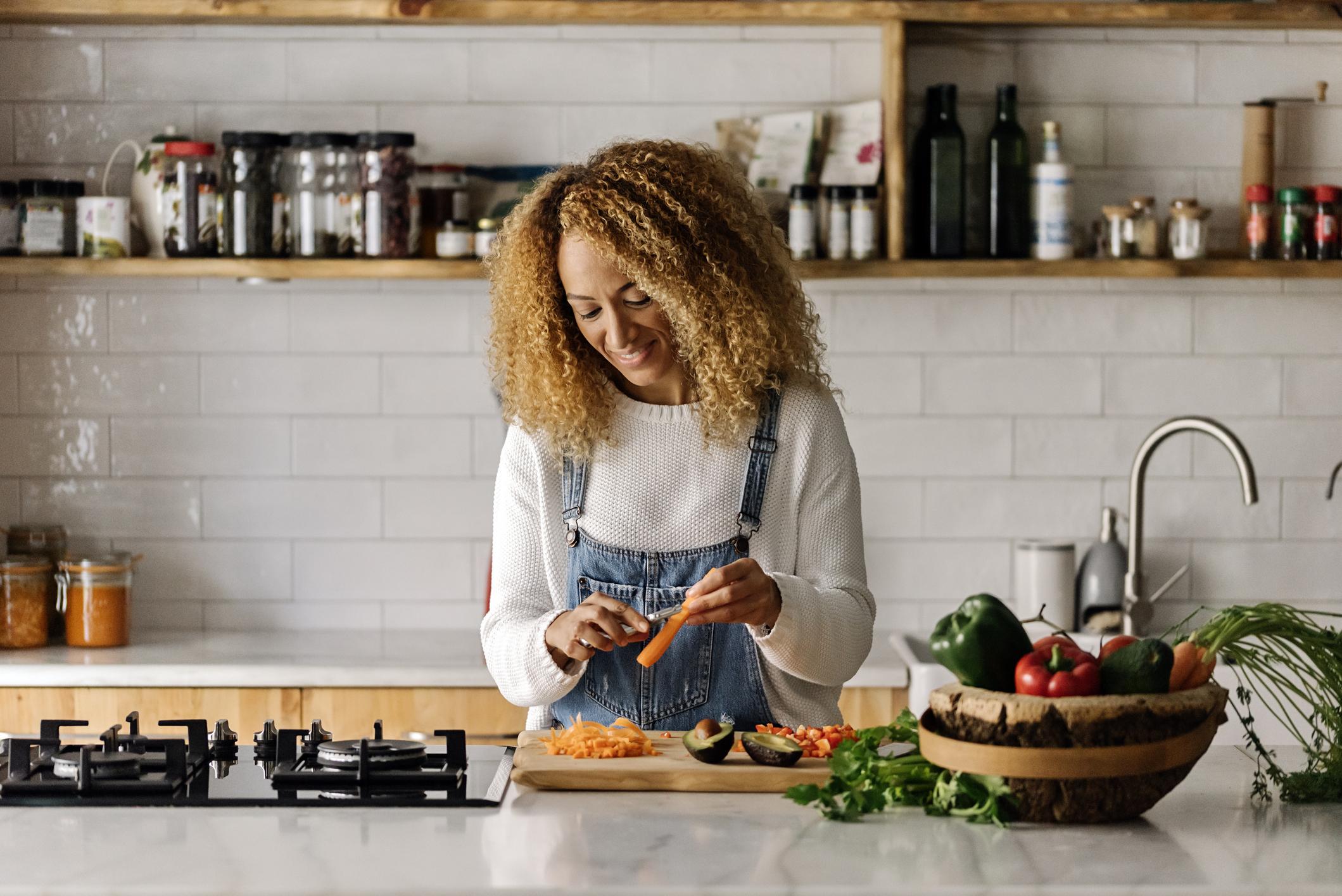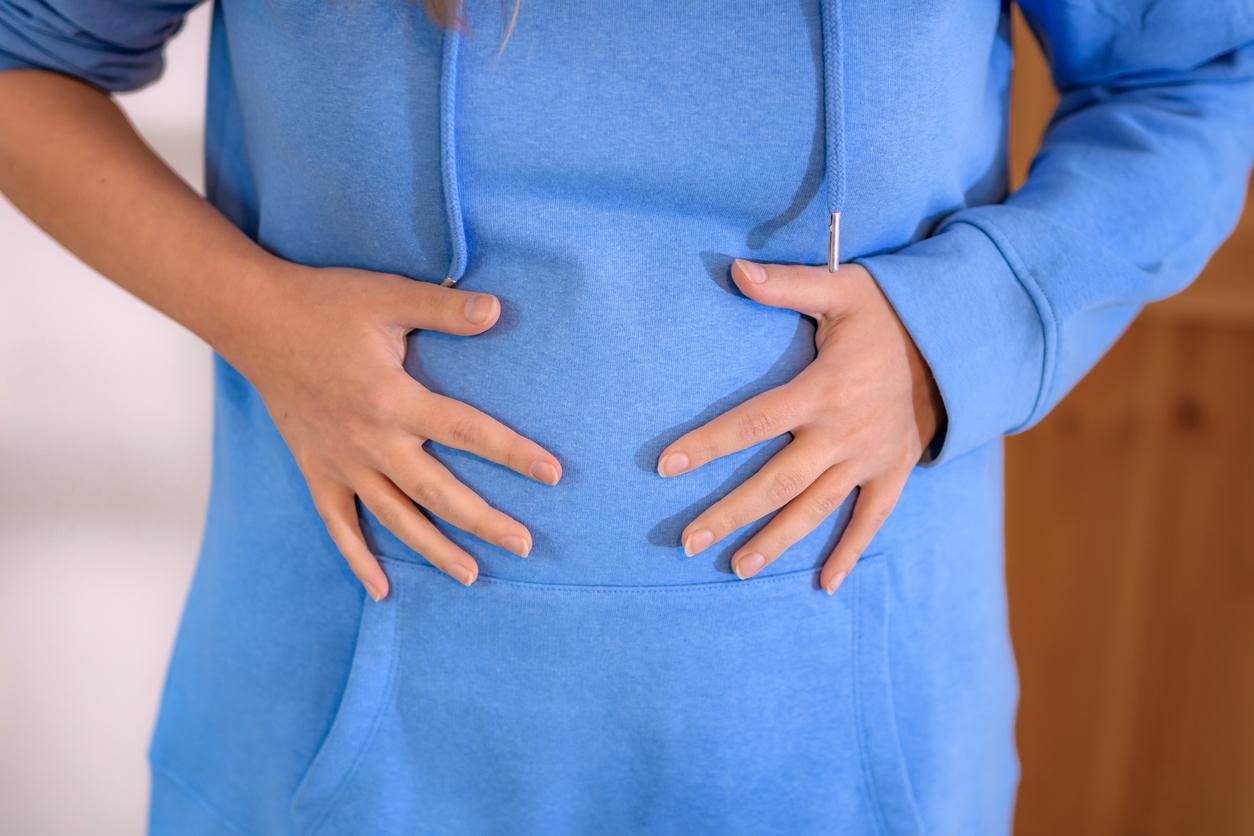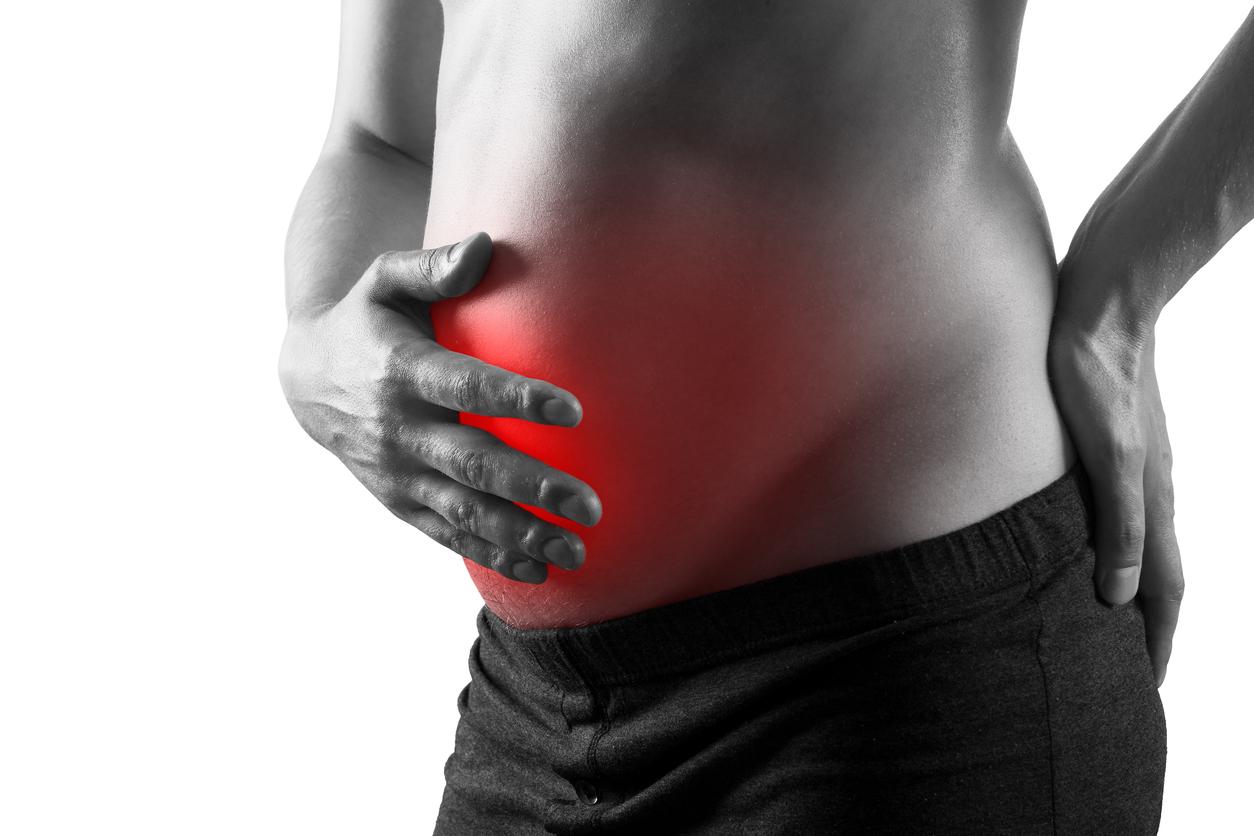THE abdominal bloating is a common symptom, especially in women. It can be accompanied by abdominal pain and it is aggravated by meals, and more important at the end of the day.
Several factors can be at the origin of this feeling of swollen belly, including an excessive production of gas in the intestine or an imbalance of the intestinal flora. But also weight gain, or sometimes irritable bowel syndrome. Stress and periods are also contributing factors.
You don’t have to not confuse bloating and aerophagia. This last disorder corresponds to a bad habit consisting in swallowing too much air while eating and/or drinking.
Elimination of certain foods can improve the situation
“These foods differ from person to person. : it can be crucifers (cabbage, cauliflower, broccoli, etc.), hard fiber foods such as raw vegetables. It is also necessary to pay attention to polyols, carbohydrates added in food, such as in sugar-free chewing gum, explained to Top Santé, Dr. Pierre Nys in a previous file. In general, it is the FODMAPs that are responsible for bloating. he adds.
What are the foods high in FODMAPs ? These are apple, mango, watermelon, honey, artichoke, asparagus, beetroot, cabbage, eggplant, garlic, leek, onion, wheat, rye , legumes, apricot, avocado, blackberries, peach, pear, plum, watermelon, cauliflower, mushrooms, sweet corn, and sweeteners (sorbitol (E420), mannitol ( E421), isomalt (E953), maltitol (E965), xylitol (E967).
- Avoid consuming highly fermentable foods such as dried beans, Brussels sprouts, onions, prunes, bananas… These carbohydrates or sugars produce gas under the effect of the intestinal flora.
- To limit bloating, it is also necessary to limit the consumption ofhigh fat foods because fats are difficult to digest, which delays the evacuation of the gastric bolus towards the intestine and can lead to bloating and flatulence.
- Third major category of foods to avoid in case of a swollen belly, foods high in insoluble fiber such as multi-grain or bran breads, chestnuts, dried fruits… Insoluble fibers are in fact responsible for bloating because they absorb and retain water, thus increasing the volume of stools which progress more quickly in the stomach. intestine.
- Finally, the soft drinks also cause swelling.
- This is also the case offoods high in fructose or lactose badly digested by some people or so-called sugar-free sweets because sweeteners cause fermentation in the intestines.
These good habits that limit bloating
In addition to food choice, certain habits can help reduce feelings of bloating:
- Eat meals at regular times
- Split meals by having 4 small meals rather than 2 larger ones,
- Take your meals in peace
- eat slowly
- Walking 15 minutes after meals helps digestion.
Thanks to Celine Touati, Anti-bloating tips and recipesEditions Jouvence, 2016.




























